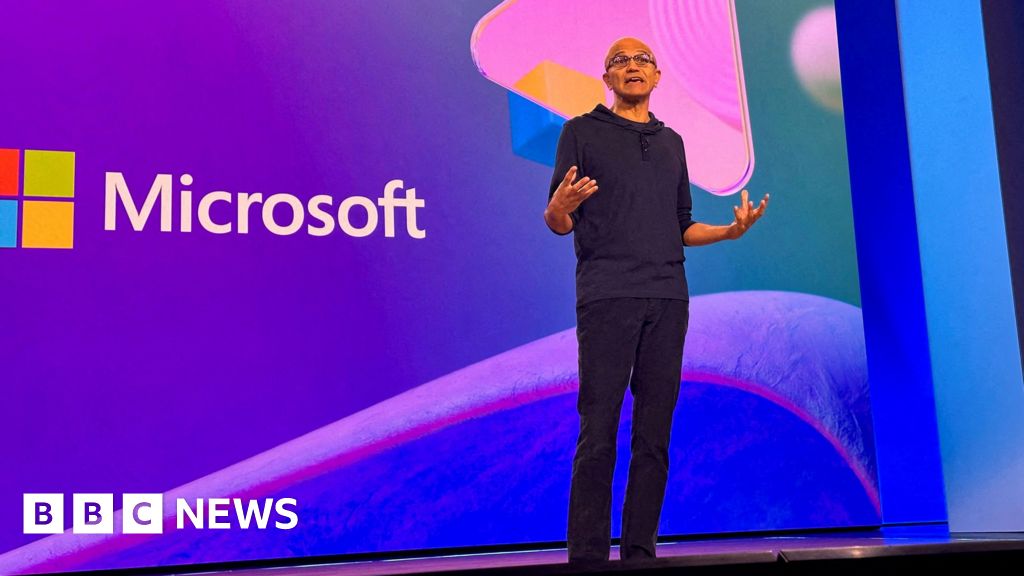The titans of the technology sector are ramping up their spending on artificial intelligence, as they rush to reap the benefits of an AI boom that has pushed stocks to record highs.
Earnings reports from Meta, Alphabet and Microsoft on Wednesday reaffirmed the colossal amounts of money these firms are shelling out for everything from data centres to chips, even as questions swirl about returns on the investments.
Meta said its capital expenditures for 2025 will be between $70bn (£53bn) to $72bn, up from an earlier estimate of $66bn to $72bn.
Its spending growth in 2026 is poised to be “notably larger” than this year, the company said. Meta is seeking to compete with companies like OpenAI.
On a call with analysts, Meta boss Mark Zuckerberg defended the firm’s investments, saying he saw big opportunities ahead driven by AI, both in terms of new products and for honing its current business selling ads and feeding people content.
“The right thing to do is accelerate this,” he said, adding later: “We are sort of perennially operating the family of apps and ads business in a compute-starved state at this point.”
Google and YouTube owner Alphabet similarly raised its forecast for this year to $91bn to $93bn, up from an earlier outlook of $85bn in the summer, in the latest sign of its increasingly lofty spending goals,
That estimate is nearly double the capital expenditures that the company reported for 2024.
Microsoft’s capital expenditures in the quarter through to 30 September, including on data centres, totalled $34.9bn, the company reported on Wednesday – a larger spending figure than analysts had expected, and up from $24 billion in the previous quarter.
“We continue to increase our investments in AI across both capital and talent to meet the massive opportunity ahead,” Satya Nadella, Microsoft’s chief executive, said.
Azure, the firm’s cloud computing unit, and Microsoft’s other AI products have a “real-world impact”, Mr Nadella said.
Exuberance among investors about massive AI spending has helped all three tech firms outperform the broader S&P 500 index.
But Wall Street is also focused on whether these firms’ investments are starting to yield tangible returns.
The two things holding up the US economy in the last several months have been consumers and AI-related business investments, said Aditya Bhave, senior US economist at Bank of America.
“To the extent that the latter remains strong, it’s a bullish signal for GDP growth,” he said.








